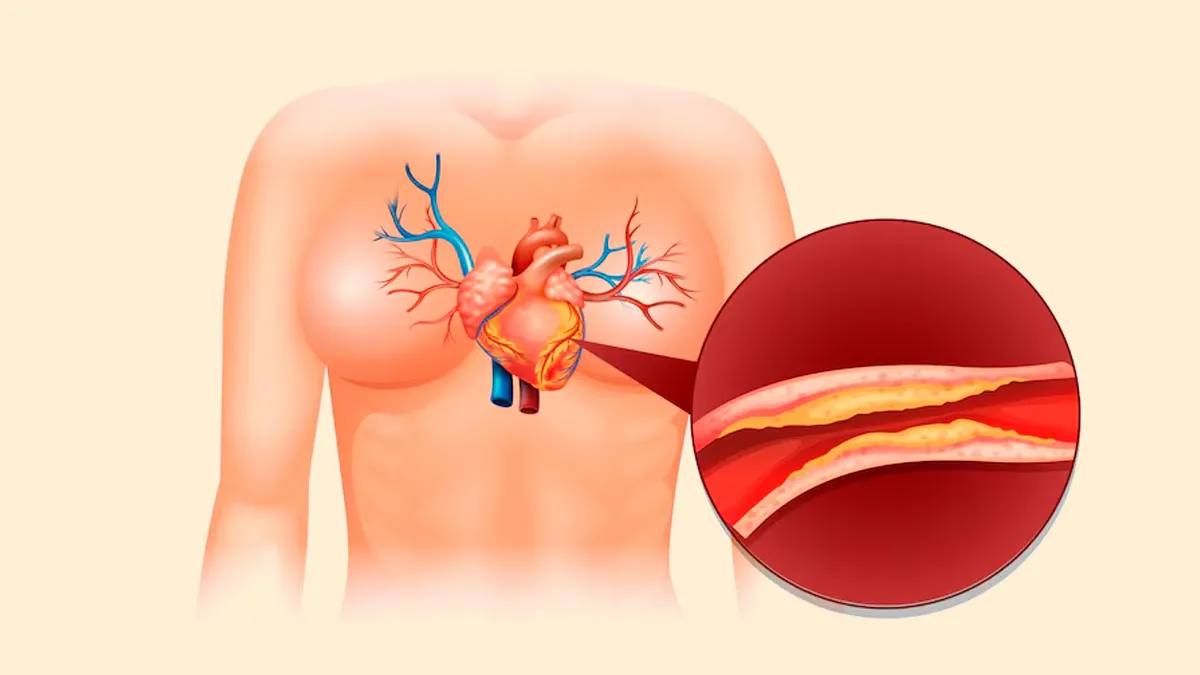
As the chill of winter envelops us, it’s not just our hands and feet that feel the cold, our hearts are under stress too. The drop in temperature can pose serious challenges to cardiovascular health, often revealing itself in subtle warning signs that surface during the stillness of winter nights. For many, these signs go unnoticed or are brushed off as minor discomforts, but understanding them can be a lifesaver.
Table of Content:-
To understand the warning signs of clogged arteries in winter, OnlyMyHealth team interacted with Dr Apurrva Sawant, Preventive Healthcare Expert, Mumbai.
According to Dr Sawant, “Winter poses unique challenges to heart health, with colder temperatures increasing the risk of cardiovascular problems. Many warning signs of clogged arteries surface at night, often unnoticed or mistaken for minor discomforts.”
Here are five key warning signs to watch out for during winter nights:
1. Chest Pain or Discomfort: A Signal from the Heart

Chest pain, or angina, often occurs during the night while resting or lying down. It’s commonly described as a sensation of pressure or tightness in the chest, which signals reduced blood flow to the heart.
“The heart works harder in cold weather, making it more vulnerable to issues like arterial blockages. Such blockages can restrict oxygenated blood, leading to pain and discomfort that requires medical attention,” explains Dr Sawant.
Ignoring chest discomfort can lead to serious complications, as the heart might not receive sufficient oxygen. If this symptom occurs repeatedly, particularly during winter, seek medical advice promptly.
Also read: Cold Sweats To Shortness Of Breath: Warning Signs Of Winter Heart Attack
2. Shortness of Breath: A Nighttime Struggle

Sudden shortness of breath during sleep or while resting is another critical warning sign. It can indicate that the heart is struggling to pump blood effectively due to blockages.
“Nighttime breathlessness may cause individuals to wake up feeling startled or gasping for air,” notes Dr Sawant. “This reflects the heart’s inability to maintain proper blood circulation and requires immediate medical attention if it happens frequently.”
Addressing shortness of breath early is vital, as prolonged episodes may indicate worsening heart function. Timely evaluation can help uncover underlying cardiovascular conditions.
3. Fatigue or Weakness: A Persistent Concern
Unexplained fatigue, especially at night, could signal an overworked heart caused by clogged arteries. This symptom might persist even after rest, disrupting both sleep and daily energy levels.
“When the heart works harder to pump blood, it can lead to physical exhaustion,” says Dr Sawant. “This kind of fatigue might not improve with sleep, indicating a potential cardiovascular issue.”
If persistent tiredness continues without a clear cause, consult a healthcare provider to determine if it’s linked to heart health. Early recognition can prevent complications.
Also read: Heart Attack And Gas: How To Distinguish Between The Two
4. Cold Sweats: A Stress Signal from the Body

Waking up in cold sweats during the night might be a stress signal from the heart. Reduced blood flow challenges the body’s ability to function smoothly, leading to cold sweats.
“Cold sweats often occur without physical activity and can feel alarming, especially when combined with chills,” observes Dr Sawant. “These episodes may be linked to heart strain and warrant monitoring if they happen frequently.”
Identifying this symptom, especially if it occurs alongside chest pain or shortness of breath, can guide timely medical evaluation. Acting early supports better heart health outcomes.
5. Nausea or Indigestion

Nausea or indigestion at night may initially appear as a stomach issue but could actually signal heart problems. This is particularly true for women, who often experience less obvious symptoms of cardiovascular conditions.
“Clogged arteries can cause discomfort that mimics digestive issues, often delaying recognition,” warns Dr Sawant. “If nausea recurs, it should be considered as a potential indicator of reduced blood flow to the heart.”
Understanding the link between digestive discomfort and heart health is critical for taking timely action. Consult a healthcare provider if nausea persists or occurs alongside other warning signs.
Protecting Your Heart During Winter
Winter’s colder temperatures put additional strain on the heart, increasing the risk of clogged arteries and related complications. Recognizing these warning signs, chest pain, shortness of breath, fatigue, cold sweats, and nausea, is essential for early diagnosis and prevention.
“Understanding warning signs is crucial for timely action and heart health management,” advises Dr Sawant. “If you notice any of these symptoms, seek medical advice promptly to protect your heart health during colder months.”
Prioritising heart health in winter can make a significant difference in preventing severe complications. Stay vigilant, and don’t ignore any signs that could indicate a potential cardiovascular issue.
Also watch this video
How we keep this article up to date:
We work with experts and keep a close eye on the latest in health and wellness. Whenever there is a new research or helpful information, we update our articles with accurate and useful advice.
Current Version